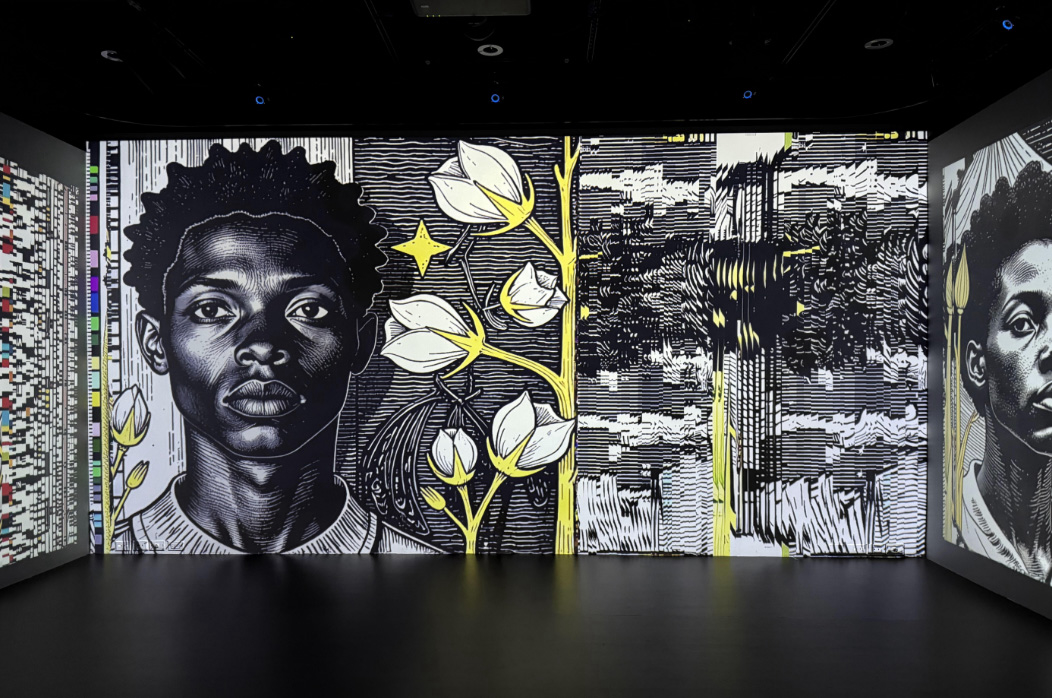
"Curated by Elizabeth Thomas, Stephanie Dinkins' exhibition " Data Trust " (through March 22, 2026, at the San José Institute of Contemporary Art) reimagines an equitable relationship between technology and historically marginalized communities-whose information and representation have often been lacking, inaccurate, and manipulated. In the exhibition, Dinkins presents an impressive array of sculptures, interactive installations, image-based works, and digital tools that consider how stories are collected and passed-on through cultural, biological, and digital systems."
"Starting with the clever title, Dinkins invites viewers to balance the seemingly sterile and objective idea of data alongside ideas of trust, where we weigh more ambiguous social and intuitive relationships and feelings. Dinkins also flips the idea of a trust, as a legal entity that protects assets (usually financial), for future generations or beneficiaries. As Dinkins suggests data as something we can have a relationship with, or a cache to be protected, both are rooted in a user's confidence in the system's integrity."
"The backbone of many of the exhibition's works lies in the process of collecting viewers' stories; the artist presents several physically and socially interactive platforms for "gifting" these stories to her AI's dataset. In Dinkins' relatively simple app "The Stories We Tell Our Machines (TSWTOM)" the artist poses questions to users about dreams, cultural representation, memories, and more. Towards the gallery entrance Dinkins frames story-telling through the many layers of cultural symbolism, history, and emerging bioscience."
Stephanie Dinkins' Data Trust reimagines equitable relations between technology and historically marginalized communities by centering consent, stewardship, and cultural representation. The project combines sculptures, interactive installations, image-based works, and digital tools to investigate how personal stories circulate through cultural, biological, and digital systems. Viewers contribute memories and narratives via interactive platforms and an app titled "The Stories We Tell Our Machines (TSWTOM)" to build an AI dataset. The work reframes trust as both emotional confidence and legal protection, interrogates ownership and control of data, and prompts accountability questions about how data is obtained, governed, and safeguarded for beneficiaries.
Read at 48 hills
Unable to calculate read time
Collection
[
|
...
]